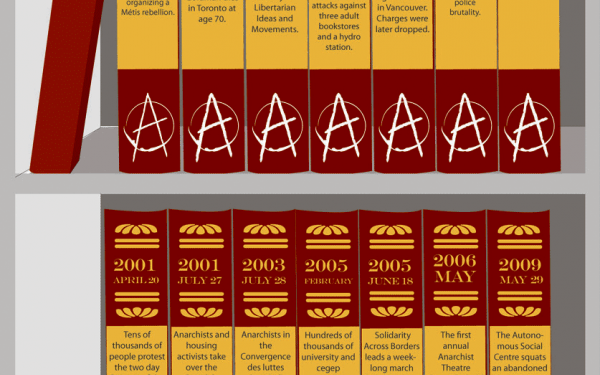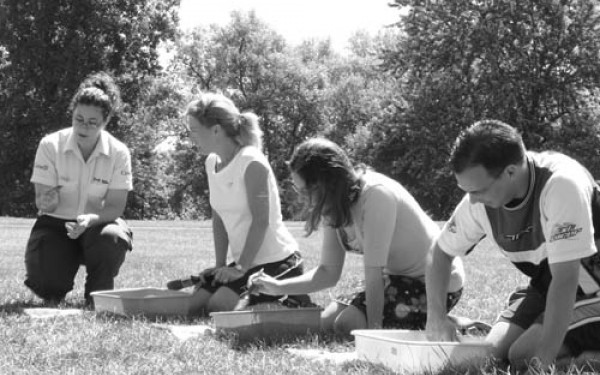The Motorcycle Diaries
Ask an American and they’ll tell you that Canada is a country filled with overly polite hockey players and hasn’t experienced a crime more serious than jay-walking in a dog’s age.
Like all stereotypes, however, there’s a grain of truth to it—but there’s also a grain of bullshit. While Canada is, compared to our neighbours to the south, a relatively safe country, there is a dark and seedy side to it, filled with enough rapes, drug deals and murders to keep Martin Scorsese occupied for the next century.
In Showdown: How the Outlaws, Hells Angels and Cops Fought for Control of the Streets, Jerry Langton profiles the groups that were most prolific in the ol’ Canadian era of ultra-violence in the second half of the 20th century: outlaw motorcycle gangs.
Langton describes the rise of biker gangs in excruciating detail, delving deep into the founding and evolution of well-known groups like the Hells Angels, Outlaws and Bandidos, as well as minor players like Satan’s Choice, the Rockers, the Mongols, the Loners and their ilk.
Although Quebec’s biker war—which raged furiously between 1994 and 2002 and claimed over 100 lives—has long been the focus of the media’s attention when it comes to the gangs, Langton instead concentrates on the bloody battle for Ontario. It’s compelling stuff, filled with colourful characters such as former Hells Angels national president Walter Stadnick and Outlaws president Mario “Mike” Parente, who Langton managed to interview for the book.
Centered around Stadnick and Parente’s hometown of Hamilton, Showdown is a vivid and comprehensive account of the politics, partying and personalities that made up a bloody chapter of Canadian history.
The book’s major weakness is that Langton’s attention to detail goes way beyond being informative and well into anal-retentive territory. Chronologies of some of the biker gangs, even small ones who are not integral to the story being told, can read like a biblical family tree—“The Phantom Riders begat Satan’s Choice who begat Hells Angels, and lo, much cocaine was sold throughout the land.”
The sheer number of people mentioned in the book often makes it hard to know who is fighting whom. Showdown may have been a more streamlined read had Langton focused more on a few key players, as he did in Fallen Angel, his biography of former Hells Angels leader Stadnick.
When Langton focuses on a few of the many colourful characters, Showdown bristles with the same restless energy that fuels these outlaw gangs—one scene in particular, in which eight members of the Bandidos are murdered one by one by a fellow Bandido, is absolutely chilling, in large part because of Langton’s matter-of-fact prose.
Thanks to extensive research and firsthand interviews with the proverbial cops and robbers, Showdown is as complete a tome as you can expect to find on Ontario’s biker battles. Though at times perhaps too complete, it’s a stark reminder that behind Canada’s tranquil veneer, we breed Mom Bouchers as well as Wayne Gretzkys.
This article originally appeared in Volume 31, Issue 07, published September 28, 2010.

__900_582_90.jpg)





